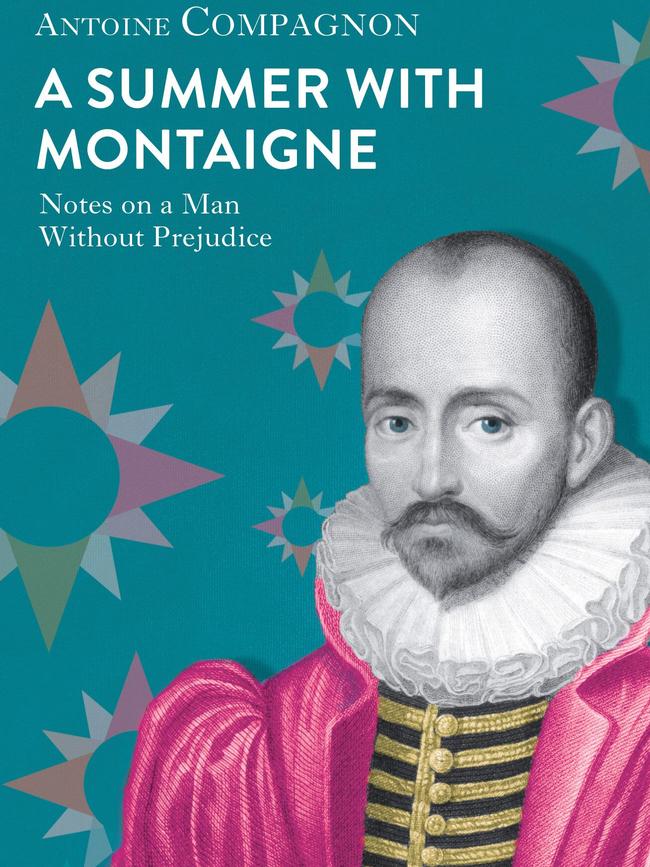Looking forward to 16th century read
I was chatting to Stephen Loosley recently and in the course of conversation I wondered how anyone finds time to read anything new.

Anyway, in the course of this conversation I wondered how anyone finds the time to read anything new. As you may have noticed in recent weeks, I’ve been reading a lot of people who aren’t with us any more, in the flesh at least. Loosley replied: ‘‘Well, because blokes like you send me novels by Jo Nesbo.” He’s right about that, and his review of Nesbo’s latest Harry Hole thriller will appear here soon.

I do look forward to reading new books. I have Charlotte Wood’s next novel, The Weekend, at home. It’s perhaps the book I have most anticipated this year. I will hold off reading it, though, until nearer its publication in October. I am eager to read Michel Houllebecq’s new novel, Serotonin, when it is released in English translation around the same time. Both writers, one Australian, one French, are ahead of the times, I think. They see what is looming. I am also dead keen to read JM Coetzee’s The Death of Jesus, due in September, not least because I need to know how this trilogy ends.
Having said that, I now want to mention the French Renaissance essayist and philosopher Michel de Montaigne. On the flip side, this 16th century writer slipped into my head via a book by a 21st century writer: A Summer with Montaigne: Notes on a Man Without Prejudice, by Antoine Compagnon, translated by Tina Kover (Europa Compass, $24.99).
This collection of 40 short and sharp essays on the famous essais by Montaigne flows from a radio guest spot Compagnon, a Belgian-born professor of French literature, did every day over one summer. He chose a bit of Montaigne and tried to explain it. His chatty, intelligent engagement with a writer who is full of complexities and contradictions comes through in the book.
I like that Compagnon emphasises that Montaigne was not a recluse. His “withdrawal to his estates was never intended as a rejection of other people, but rather as a way of improving his ability to interact with them”. That’s a reassuring thought.
Before he retired to immerse himself in reading and writing, Montaigne was active in French public life, including as mayor of Bordeaux. Discussing this in “On Managing the Will”, he draws a distinction between our outer and inner selves. “We are actors, masks,” Compagnon interprets, “therefore we must not mistake ourselves for the roles we play. We must maintain the margin between our inner life and our worldly affairs.”
The take on Montaigne’s ideas about friendship, especially following the death of his great friend Etienne de la Boetie, is fascinating. My favourite essay, though, is “On Books”, and after reading Compagnon’s thoughts on it I automatically turned to the Penguin Classics edition of Essays on my bookshelf, translated and introduced by Cambridge scholar JM Cohen.
Here’s a bit I keep in mind as I go about my day job: “I freely state my opinion about all things, even those which perhaps fall outside of my capacity, and of which I do not for a moment suppose myself to be a judge. What I say about them, therefore, is meant to reveal the extent of my own vision, not the measure of the things themselves.”
Reading A Summer With Montaigne also made me think about the recent trend in which contemporary writers reimagine great works from the past. The queue of people, including Colm Toibin and Pat Barker, who have jostled to rework the Greek classics is a long one. Salman Rushdie’s next novel Quichotte, due in September, spins off Don Quixote. It’s been happening a fair bit in the theatre, too, with works not written for the stage, such as Moby-Dick, Lord of the Flies, Nineteen Eighty-Four and, from a local perspective, Wake in Fright, being put in a new perspective. Part of me wonders if this return to such foundational writing is a response to the hard-to-work-out world in which we live.
To finish with a bit of advertising, I have been asked to host a “book club at sea” aboard the Regal Princess in August next year. The cruise will take in England, Ireland and Scotland, with a brief detour to France. If you know anyone who may be interested in hearing me talk about, say, Samuel Johnson at one of his regular pubs in London, Ye Olde Chesshire Cheese, please let them know about this trip. Details: travelrite.com.au




I was chatting to Stephen Loosley the other day and we talked a bit about John Steinbeck, mainly because of the relatively unknown Australian documentary Bikes of Wrath, which I reviewed in this paper in February. Loosley has reviewed it for The 45th, an online forum of the US Studies Centre at the University of Sydney. He thinks it is the best Australian doco of 2019. I wouldn’t go that far but I agree it deserves a wider audience.